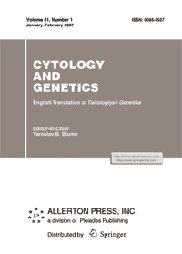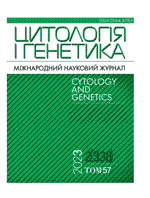We aimed to determine P268S and M863V polymorphisms in NOD2/CARD15 genes associated with an increased risk of developing Crohn’s disease (CD) and ulcerative colitis (UC) and to establish correlations between P268S and M863V genotypes in Turkish population. This study included 152 healthy controls and 138 patients (62 CD and 76 UC) with IBD. Our results, the P268S CC genotype was prevalent on patients and controls (45 vs 66 %), followed by genotypes CT (48 vs 28 %) and TT (7 vs 6 %) in CD. The prevalence of genotypes of CC (wild-type), CT (heterozygous mutant) and TT (homozygous mutant) profiles for the P268S polymorphism were 68, 25 and 7 % respectively in UC patients, and 66, 28 and 6 % respectively in healthy control groups. We were found in wild-type M863V in all subjects and no other mutant band. P268S polymorphism may be associated with CD susceptibility in Turkish population, whereas there is not associated between M863V polymorphisms and patients with IBD in Turkish population.
Keywords: Ulcerative colitis, Crohn’s disease, NOD2/CARD15 gene, Single nucleotide polymorphism, RFLP

Full text and supplemented materials
References
1. Lacher, M., Schroepf, S., Ballauff, A., Lohse, P., Von Schweinitz, D., Kappler, R., and Koletzko, S., Autophagy 16-like 1 rs2241880 G allele is associated with Crohn’s disease in German children, Acta. Paediatr., 2009, vol. 98, no. 11, pp. 1835–1840. https://doi.org/10.1111/j.1651-2227.2009.01438.x
2. Latiano, A., Palmieri, O., Valvano, M.R., D’Incà, R., Cucchiara, S., Riegler, G., Staiano, A.M., Ardizzone, S., Accomando, S., de Angelis, G.L., Corritore, G., Bossa, F., and Annese, V., Replication of interleukin 23 receptor and autophagy-related 16-like 1 association in adult-and pediatric-onset inflammatory bowel disease in Italy, World. J. Gastroenterol., 2008, vol. 14, no. 29, pp. 4643–4651. https://doi.org/10.3748/wjg.14.4643
3. Serbati, N., Senhaji, N., Diakite, B., Badre, W., and Nadifi, S., IL23R and ATG16L1 variants in Moroccan patients with inflammatory bowel disease, BMC Res. Notes, 2014, vol. 7, pp. 570–75. https://doi.org/10.1186/1756-0500-7-570
4. Boirivant, M. and Cossu, A., Inflammatory bowel disease, Oral. Dis., 2012, vol. 18, no. 1, pp. 1–15. https://doi.org/10.1111/j.1601-0825.2011.01811.x
5. Barreiro-de Acosta, M. and Peña, A.S., Clinical applications of NOD2/CARD15 mutations in Crohn’s disease, Acta Gastroenterol. Latinoam., 2007, vol. 37, no. 1, pp. 49–54.
6. El-Tawil, A.M., Genetic predisposition and inflammatory bowel disease, Gastroenterol. Res., 2013, vol. 6, no. 1, pp. 1–3. https://doi.org/10.4021/gr523w
7. Long, W.Y., Chen, L., Zhang, C.L., Nong, R.M., Lin, M.J., Zhan, L.L., and Lv, X.P., Association between NOD2/CARD15 gene polymorphisms and Crohn’s disease in Chinese Zhuang patients, World. J. Gastroenterol., 2014, vol. 20, no. 16, pp. 4737–4744. https://doi.org/10.3748/wjg.v20.i16.4737
8. Chen, L., Lin, M.J., Zhan, L.L., and Lv, X.P., Analysis of TLR4 and TLR2 polymorphisms in inflammatory bowel disease in a Guangxi Zhuang population, World. J. Gastroenterol., 2012, vol. 18, no. 46, pp. 6856–6860. https://doi.org/10.3748/wjg.v18.i46.6856
9. Lesage, S., Zouali, H., Cézard, J.P., Colombel, J.F., Belaiche, J., Almer, S., Tysk, C., O’Morain, C., Gassull, M., Binder, V., Finkel, Y., Modigliani, R., Gower-Rousseau, C., Macry, J., Merlin, F., Chamaillard, M., Jannot, A.S., Thomas, G., and Hugot, J.P., CARD15/NOD2 mutational analysis and genotype-phenotype correlation in 612 patients with inflammatory bowel disease, Am. J. Hum. Genet., 2002, vol. 70, no. 4, pp. 845–857. https://doi.org/10.1086/339432
10. Hampe, J., Cuthbert, A., Croucher, P.J., Mirza, M.M., Mascheretti, S., Fisher, S., Frenzel, H., King, K., Hasselmeyer, A., MacPherson, A.J., Bridger, S., van Deventer, S., Forbes, A., Nikolaus, S., Lennard-Jones, J.E., Foelsch, U.R., Krawczak, M., Lewis, C., Schreiber, S., and Mathew, C.G., Association between insertion mutation in NOD2 gene and Crohn’s disease in German and British populations, Lancet, 2001, vol. 357, no. 9272, pp. 1925–1928. https://doi.org/10.1016/S0140-6736(00)05063-7
11. Hugot, J.P., Chamaillard, M., Zouali, H., Lesage, S., Cézard, J.P., Belaiche, J., Almer, S., Tysk, C., O’Morain, C.A., Gassull, M., Binder, V., Finkel, Y., Cortot, A., Modigliani, R., Laurent-Puig, P., Gower-Rousseau, C., Macry, J., Colombel, J.F., Sahbatou, M., and Thomas, G., Association of NOD2 leucine- rich repeat variants with susceptibility to Crohn’s disease, Nature, 2001, vol. 411, no. 6837, pp. 599–603. https://doi.org/10.1038/35079107
12. Medici, V., Mascheretti, S., Croucher, P.J.P., Stoll, M., Hampe, J., Grebe, J., Sturniolo, G.C., Solberg, C., Jahnsen, J., Moum, B., Schreiber, S., and Vatn, M.H., Extreme heterogeneity in CARD15 and DLG5 Crohn disease-associated polymorphisms between German and Norwegian populations, Eur. J. Hum. Genet. 2006, vol. 14, no. 4, pp.459–468. https://doi.org/10.1038/sj.ejhg.5201576
13. Tukel, T., Present, D., Rachmilewitz, D., Mayer, L., Grant, D., Risch, N., Shalata, A., and Desnick, R.J., Crohn disease: frequency and nature of CARD15 mutations in Ashkenazi and Sephardi/oriental Jewish families, Am. J. Hum. Genet., 2004, vol. 74, no. 4, pp. 623–636. https://doi.org/10.1086/382226
14. Ince, A.T., Hatirnaz, O., Ovünc, O., and Ozbek, U., 1007fs, G908R, R702W mutations and P268S, IVS8+158 polymorphisms of the CARD15 gene in Turkish inflammatory bowel disease patients and their relationship with disease-related surgery, Dig. Dis. Sci., 2008, vol. 53, no. 6, pp. 1683–92. https://doi.org/10.1007/s10620-007-0054-4
15. Karban, A., Atia, O., Leitersdorf, E., Shahbari, A., Sbeit, W., Ackerman, Z., and Eliakim, R., The relation between NOD2/CARD15 mutations and the prevalence and phenotypic heterogeneity of Crohn’s disease: lessons from the Israeli Arab Crohn’s disease cohort, Dig. Dis. Sci., 2005, vol. 50, no. 9, pp. 1692–1697. https://doi.org/10.1007/s10620-005-2917-x
16. Gasche, C., Nemeth, M., Grundtner, P., Willheim-Polli, C., Ferenci, P., and Schwarzenbacher, R., Evolution of Crohn’s disease-associated Nod2 mutations, Immunogenetics, 2008, vol. 60, no. 2, pp. 115–120. https://doi.org/10.1007/s00251-008-0274-6
17. Yang, H., McElree, C., Roth, M.P., Shanahan, F., Targan, S.R., and Rotter, J.I., Familial empiric risks for inflammatory bowel disease: difference between Jews and non-Jews, Gut, 1993, vol. 34, no. 4, pp. 517–524. https://doi.org/10.1136/gut.34.4.517
18. Fidder, H.H., Olschwang, S., Avidan, B., Zouali, H., Lang, A., Bardan, E., and Chowers, Y., Association between mutations in the CARD15 (NOD2) gene and Crohn’s disease in Israeli Jewish patients, Am. J. Med. Genet., 2003, vol. 121, no. 3, pp. 240–244. https://doi.org/10.1002/ajmg.a.20209
19. Karban, A., Waterman, M., Panhuysen, C.I., Pollak, R.D., Nesher, S., Datta, L., Weiss, B., Suissa, A., Shamir, R., Brant, S.R., and Eliakim, R., NOD2/CARD15 genotype and phenotype differences between Ashkenazi and Sephardic Jews with Crohn’s disease, Am. J. Gastroenterol., 2004, vol. 99, no. 6, pp. 1134–1140. https://doi.org/10.1111/j.1572-0241.2004.04156.x
20. Sugimura, K., Taylor, K.D., Lin, Y.C., Hang, T., Wang, D., Tang, Y.M., and Yang, H.A., Novel NOD2/CARD15 haplotype conferring risk for Crohn disease in Ashkenazi Jews, Am. J. Hum. Genet., 2003, vol. 72, no. 3, pp. 509–518. https://doi.org/10.1086/367848
21. Scudiero, O., Nigro, E., Monaco, M.L., Polito, R., Capasso, M., Canani, B.R., Castaldo, G., and Daniele, A., 802C>T NOD2/CARD15 SNP is associated to Crohn’s disease in Italian patients, Hered. Genet., 2015, S7. https://doi.org/10.4172/2161-1041.S7-005
22. Al-Sulaiman, R.M., Ismail, M.H., Yasawy, M.I., Al-Ateeq, S.A., Abdelrashid, M.M., Hussameddin, A.M., and Al-Quorain, A.A., Association of NOD2/CARD15, DLG5, OCTN1 and toll-like receptor 4 gene polymorphisms with inflammatory bowel disease: a university hospital experience, Saudi. J. Med. Med. Sci., 2014, vol. 2, no. 2, pp. 81–85. https://doi.org/10.4103/1658-631X.136988
